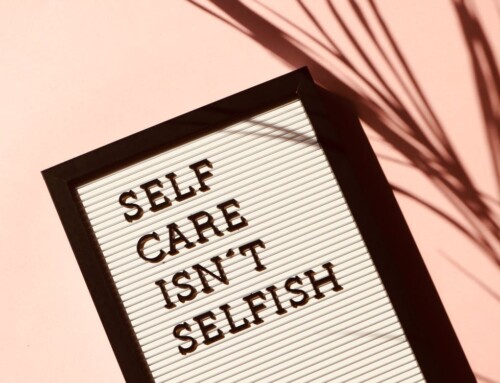Teen Counselor on Steps to Prevent Teen Pregnancy – Jamie Lynn Spears
“She was my good girl . . . she was ashamed of her sister’s behavior over the past couple of years and swore to learn from her mistakes . . . she was always home by curfew . . . she’s my baby.” These are quotes from Lynn Spears mother of Brittany and Jamie Lynn Spears.Spears announced her pregnancy, Lynn Spears could not help but reflect on the good characteristics of her daughter; “she was my good girl…Apparently, Jamie’s mother allowed the boyfriend to live with her and her mother and was not supervised when mother was traveling abroad.
More Videos on this topic
Step #1: Educate your Teens about sex, around age 10 for girls and age 10-11 for boys. Preparing for Adolescence by Dr. James Dobson is a great book to give to your pre-adolescent or adolescent. Once you both read the book, discuss each chapter. It’s important that you are approachable as well.
Ask yourself this question . . When did pre-marital sex become a problem?
Answer: When our culture created the Industrial Revolution and made kids stay home longer. From the beginning of time to approximately 150 years ago people were married shortly after they hit puberty. Since the Industrial Revolution there has been a need for more skilled labor and therefore child labor laws were made to require students to go to school, and the need for more skilled labor has extended childhood (what we now call adolescence). Before the Industrial Revolution there was not a big problem with pre-marital sex as they were married shortly after they hit puberty. They were adults at 13 and even in some cultures they are still considered adults. Now students are not ready socioeconomically to be married or independent, and it’s been recommended to them to abstain but their hormones are screaming out. So how can we help them to understand the benefits of waiting? Educate them on why it’s good to wait.
I am often asked to talk to students in youth groups, or schools in assemblies and retreats about Abstinence and part of my talk is provocatively entitled, “How to Have the Best Sex!” There have been multiple studies on sexual satisfaction over the past 6 decades from Dartmouth University, Oxford, University of Chicago & a 100,000 woman survey by Redbook Magazine. Here’s what the research concluded:
6 Steps to Having the Most Satisfying Sex Life
- Live apart from each other before you marry-A British government study found that couples who lived together before marriage are at least 40 percent more likely to divorce within 15 years of their weddings, and 60 percent more likely to divorce or separate at some point. Similar studies in Canada, Sweden & the U.S. also had similar findings.
- No Sexual Experience before Marriage-Several Studies (including the Redbook survey) show that women who engage in early sexual activity and those who have had multiple partners are less apt to express satisfaction with their sex lives than women who entered marriage with little or no sexual baggage. According to the CDC, 80% of women report they regret their first pre-marital sexual encounter and a high percentage report 20 years later when having sex they visualize the first person they had sex with and note it’s “anti-climactic.”
- Marital Commitment-Sex therapist Mary Ann Mayo says this connection is particularly strong for women, since “their sexual responsiveness is greatly affected by the relational context in which lovemaking takes place.” Mayo says that a mutual commitment to lifelong marriage not only makes it easier for women to “let themselves go” sexually, but it also tends to encourage constructive “pillow talk” about sex between spouses.
- Attend Church Together?? 1994 University of Chicago study: “Sex in America: The Definitive Survey,” found that monogamous conservative Christians reported the most physical satisfaction from sex. Several other studies show that married couples who attend church at least once per week are the most sexually contented segment of society. While sexual fulfillment certainly contributes to marital satisfaction, Mayo says that sexual enjoyment is more commonly a byproduct of a stable, happy union rather than the primary cause of it. Often those who go to church have more access to marriage seminars and couples weekends are a more likely to receive pre-marital counseling. A 1993 research review by psychologist Timothy Kelly found that the frequency of church attendance positively affected sexual satisfaction above and beyond one’s commitment to traditional sexual morality. Similarly, the controversial 1993 Janus Report on Sexual Behavior found the nonreligious “have a tendency to focus on the more technical or physical performance aspects of sex, the religious pay more attention to the mystical and symbolic dimensions of one’s sexuality.”
- Lack of Sexual Anxiety-A UCLA study found that sexual satisfaction is positively affected by “the absence of sexual anxiety.” Monogamous spouses do not have the issues of guilt from violating sexual values, and they do not have the fears of STD’s or AIDS.
Here are some alarming statistics from the CDC (Center for Disease Control) that you might want to share with your students:
- In 2005, 14% of high school students had had four or more sex partners during their life.
- In 2005, 34% of currently sexually active high school students did not use a condom during last sexual intercourse.
- In 2002, 55% of males and 54% of females aged 15-19 had engaged in oral sex with someone of the opposite sex.
- In 2004, an estimated 4,883 young people aged 13-24 in the 33 states reporting to CDC were diagnosed with HIV/AIDS, representing about 13% of the persons diagnosed that year.
- Each year, there are approximately 19 million new STD infections, and almost half of them are among youth aged 15 to 24.
- In 2000, 13% of all pregnancies, or 831,000, occurred among adolescents aged 15-19.
Step #2: Home Supervision: Most teenagers have sex in their home between the hours of 3p-6p when parents are at work or running errands. If parents are not home when teenagers are then they need to arrange for a house sitter, nanny, aftercare, or a place to go where there is supervision until you get home. Jamie Lynn most likely did not have intentions in having sex or getting pregnant. Often a lot of pressure is put on girls to be the gate keeper in the relationship. Girls often start off with good intentions, but when they allow a guy to touch them their defenses are weakened. Girls start to make decisions less on logic and more on emotion. How many healthy decisions are made from emotion? Not many if any healthy decisions are made based upon emotion. Students often say “it just happened” and that is exactly what happens when girls allow guys to touch them inappropriately.
Step #3: A No Friends in the House Rule: When parents are not home this is also a good policy and might work if you have nosey neighbors who have your cell phone number.
Step #4: Life Lesson. Use situations like Jamie’s as a Life Lesson. Students can learn from others mistakes and they need help processing how this happened. Here are some questions from http://www.momlogic.com/ to help guide you through making this a life lesson for your student
THE TIP: It’s important to make the gravity of the situation feel real for your tween.It’s very difficult for teens and tweens to grasp the concept of consequences. It makes it even harder when they see people they look up to, like Jamie Lynn, getting pregnant—especially when it doesn’t seem like the consequences for them are so bad. Asking your tween some tough questions will help her look at this situation in a different light.
THE SCRIPT: • How do you think Jamie Lynn felt when she had to tell her Mom she was pregnant?• How do you think she felt when she had to tell her friends? • How do you think her boyfriend felt telling his parents that he got his girlfriend pregnant? • How do you think she feels about taking on the responsibility of caring for a new baby? • How do you think her boyfriend feels knowing that he and his family will be financially responsible for supporting another life, starting now? • If this happened to one of your friends at school, how would the situation be different from Jamie Lynn’s? How would it be the same?
WHY IT WORKS: Answering questions like these will help tweens understand that what they’re hearing in the media is not the entire story. Jamie Lynn and her family are likely having many conversations behind closed doors and experiencing a lot of heartache over this pregnancy that the public is simply not privy to. You don’t want to panic or scare your child, but you want to help them view the situation realistically.
THE TIP: Make sure your tween knows she can come to you no matter what. Most importantly, you need to let your tween know you would be there for her in a similar situation—and that you would want her to talk to you first.
THE SCRIPT: “I will always love you, and I will always listen to you. If you or your friends are in a situation you can’t handle—like you’re sexually active, or you become pregnant—I would want you to come to me first. Your well-being is what’s most important to me.”
WHY IT WORKS: These words let you share your expectations and values with your tween while still keeping the lines of communication open. If she feels like she can always come to you, you’re less likely to be surprised by any unexpected news or announcements, like Jamie Lynn’s mother Lynne Spears was. Many teens and tweens feel like their Mom would kill them if they got pregnant. The truth is, you’d probably be disappointed, but you’d still want to be the first to know. It’s important that she understands this.
THE TIP: Keep the conversation going. Jamie Lynn’s pregnancy is all over the news today, but it will likely garner less and less media attention as the days and weeks go on. However, this will probably remain front-page news for your tween for a while.
THE SCRIPT: “Hey, I heard some of the Moms at drop-off talking about Jamie Lynn. Are your friends still talking about it?”
WHY IT WORKS: As the conversation about Jamie Lynn evolves, your tween’s questions will too. By keeping the conversation alive you can make sure you answer any questions she has and squelch any misconceptions she may be picking up from friends at school.
Of course, these conversations can be awkward, but unfortunately tweens are already having conversations and hearing rumors about sex—it’s key that one of the voices they hear be one they can trust the most: their parents.
If you are interested in booking a Retreat or Seminar on this or other topics please call 407-248-0030. For helpful resources to save time by solving other parenting challenges visit:
https://staging-totallifecounselingcom.kinsta.cloud/
http://www.Family.org/
http://www.familylife.com/
NOTE: you can freely redistribute this resource, electronically or in print, provided you leave the authors contact information below intact.
Filed in: Blog, Children, Dating, Defiance, Family, Grief, Hooking Up, Jim West, Orlando, Parenting, Post Traumatic Stress Disorder (PTSD), Relationships, Teens
Share This Story, Choose Your Platform!
Total Life Counseling Center consists of Licensed Counselors, masters level therapists, Español counselors, Licensed Mental Health Counselors, business coaches, and image enhancement coaches who provide counseling for emotional, mental, physical and spiritual care including marriage, individual, family, substance abuse and more. TLC’s family, trauma and marriage experts have been interviewed on National and Local TV/Radio over 200 times for their expert advice on Fox News, OWN, WETV, ABC’s Medical Minute and more. Our skilled counselors are relational, approachable and specialists providing therapy services in the Central Florida area including: Orlando, Winter Park, MetroWest, Windermere, Dr. Phillips, East Orlando, Lake Mary, and Clermont, Boca Raton Florida, and Dallas, TX.





